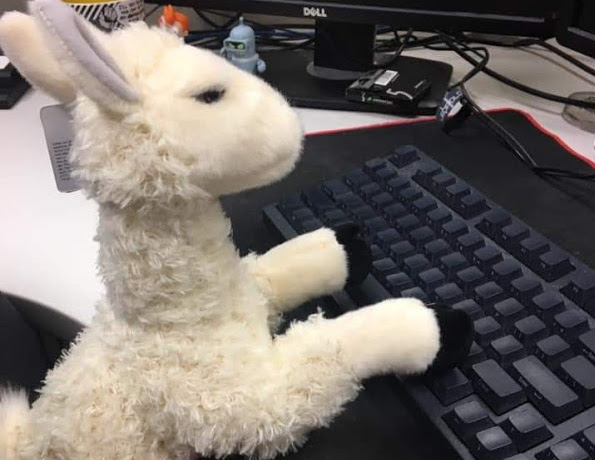
RE: FINDING ULTRA By: Rich Roll
A Book that I Have Been Thinking About
From: Travis
January 13, 2023
I had never heard of the guy running topless on the cover before, but I got the audio book version of Finding Ultra in an Audible buy one - get one scheme anyway; thoughts of picking up tips on marathon training playing in my new-years-resolution-ripe mind. Reading the blurb about how Rich Roll became a winning ultramarathoner in his forties when he had previously been a slovenly layabout, I said to myself, "Hey! I'm a slovenly layabout and I'm going to be forty soon enough, this is probably worth the zero dollars I will have to pay for it."
For the record, I have already vented my frustrations with this book to my wife, my parents, my son, so the imperative to do any venting here is lessened just a bit. So let me start by saying that this book could probably be divided into three parts:
1. Life story
2. Marathon training and Veganism
3. Running the first epic5 ultra triathlon challenge
I came for the middle part.
I suffered through the first part.
The third part is the one that makes this book worth reading.
With that in mind, let me talk about the third part first, then you can bail out when I start pissing and moaning about the rest.
As I remember it, the epic5 was an idea that came from the author's fellow triathlete. A crazy-ass endurance challenge to end all crazy-ass challenges; namely to run a full Ironman-length triathlon on each of Hawaii's 5 main islands in 5 days. To spell it out, that would mean 2.4 miles of swimming (in the ocean), then 112 miles of biking (up and down volcanoes) and a full 26.2 mile marathon run to cap it off (along the lava fields). Then do that 4 more times, but also work in there that you have to pack up your bikes and travel to the next island in between AND find time to eat AND rest at least a little bit.
Add to that, that Rich and his compatriot were the only two people doing this challenge, so for the most part, all the logistics are up to the two of them and a third lady who acted as their "sherpa".
Add to THAT, the other guy only has use of one arm, which is more than a small wrinkle. For all the description of Rich's challenges, I constantly found myself thinking, "I'd much rather be hearing this other guy tell it."
That said, this is where the narration in the book actually has some merit. There are a million people (even me) who could write about a hard marathon run. There are vanishingly few people who could tell a story like this one first-hand. It becomes part travelog, part comedy of errors, part descent into madness while attempting to plumb the depths of motivation, the benefits of vegan super foods (which he will help you buy, just btw), and the various running, biking, and swimming enthusiasts on the different islands of Hawaii.
So, yeah, if that sounds interesting, then you have my full recommendation to pick this up and skip ahead to just that section. And, if you're trying to avoid a bunch of negativity, you also have my full recommendation to click over to Wordle or something else now.
Ok.
So, my biggest complaint is this: the book is sold as this "How I became one of the world's most fit men at the age of 40, overcoming my couch potato-ery and started running ultra marathon distances" narrative.
And... it's not NOT that... But it could've been a lot MORE that.
In fact, the book opens with Rich talking about the first ultra he ever ran, having never really trained for one; a time when he crashed out and struggled to even cross the finish line. He leans hard into the idea that he's never done something like this before and that seems to be technically true.
"So guys, I bet you're wondering how I got into this mess," he says to the camera in a freeze frame moment.
Well, it turns out, the route he took to get here started (more or less) when he was an extremely competitive swimmer in high school. Like, so competitive that he got accepted to all the Ivy League schools he applied to with a scholarship attached to his swim team membership. A swim team scholarship that he fucked up by getting drunk (frequently) during practices and led to him falling off of a bleacher and breaking his leg.
No worries though, because he is also part of the legal program and falls ass-backwards into a junior role at a law firm (I guess it was him drunkenly delivering a graduation speech that charmed them?). Then he uses the fact that he is so far down the ladder at his firm that no one notices when he disappears to get drunk during the day. In fact, his drinking never really becomes a problem until he gets a second DUI which will require him to spend time in jail. But, lucky guy, he must have someone looking out for him he muses to his readers, because the paper work that would've put that second DUI on his records goes missing. So good for him. Sorry, that one lady he ran into and seriously injured, the angels are on his side today.
Ok, listen, I am not trying to demonize alcoholism. I recognize it as a disease and that even the people that find a way to keep it under control will have to battle with it for their entire lives. The fact that he was an alcoholic isn't what I'm trying to use to criticize. The thing is this guy seems to have no concept of how much of a leg up he has had in life, let alone in the arena of endurance sporting.
The guy is not exactly a "never trained a day in my life" athlete if multiple colleges were interested in recruiting him. Not to mention that his parents were well off enough that they could send him to any Ivy League college he wants and he "mysteriously" benefited from some paperwork going missing when his boss at the law firm caught wind that he was probably headed to jail. Even later on, after his months and months in rehab, he's able to start his own sports law practice, which, fortunately frees up a lot of his time so he can go on super long distance runs during the days and dip into doing law stuff whenever he feels like it.
This is not a roadmap that just any random person can follow.
And even when he gets to the part where he's trying to tell us about how he eventually did begin training for endurance events, we really only get some suggestions to go as vegan as you can. And get yourself a coach, who will help you plan your training sessions and keep you on track.
I mean, this does seem like great advice... but what if we can't afford a coach? He tells us that most amateur runners make the mistake of either training way too hard, or not hard enough... but, like, how do us mere mortals fix that situation? I'm willing to concede that I could've just missed that nugget of wisdom, I do sometimes get distracted when the guy reading the audio book is super monotone. Seems more likely to me that we're supposed to pay into some training program he offers or something.
Ok, listen, I want to cut off my negativity here and circle back to the beginning. There are narratives in this book that only Rich could possibly tell. It's his life story after all, he's the one who lived it, and who am I to say what should or shouldn't have been included in his long road to ultramarathon. And, you know, other people might not be as put out by his youthful indiscretions; I'm sure there's a bunch of people that would really benefit from hearing how he was ultimately able to convince himself to give rehab a real chance after so many failed attempts.
It's just that was not what I came to the book for.




